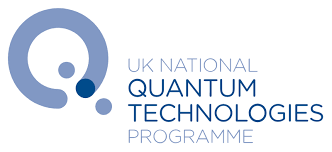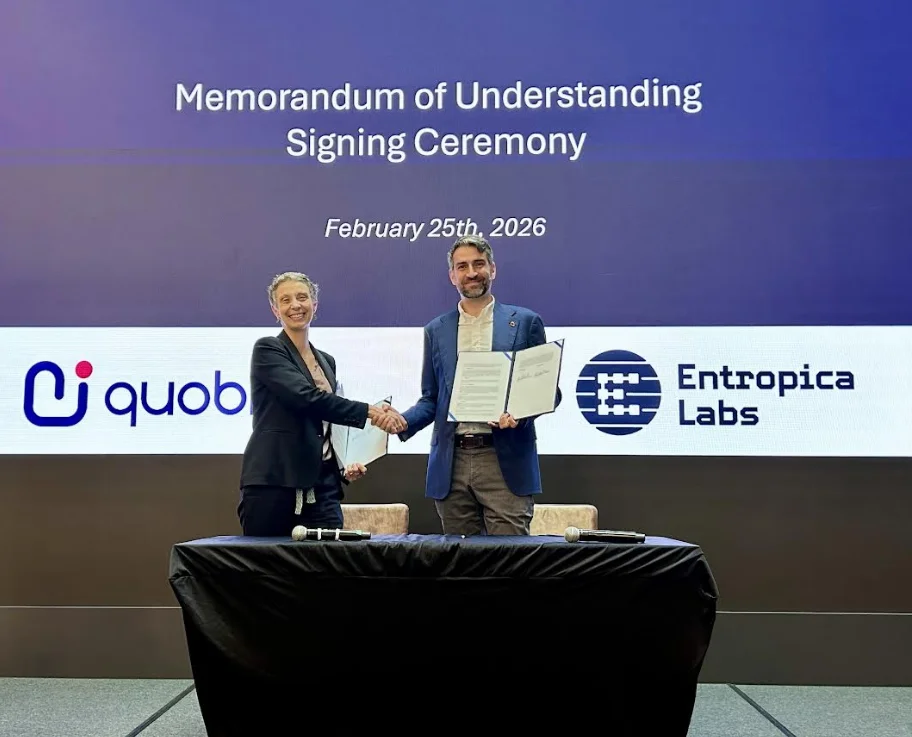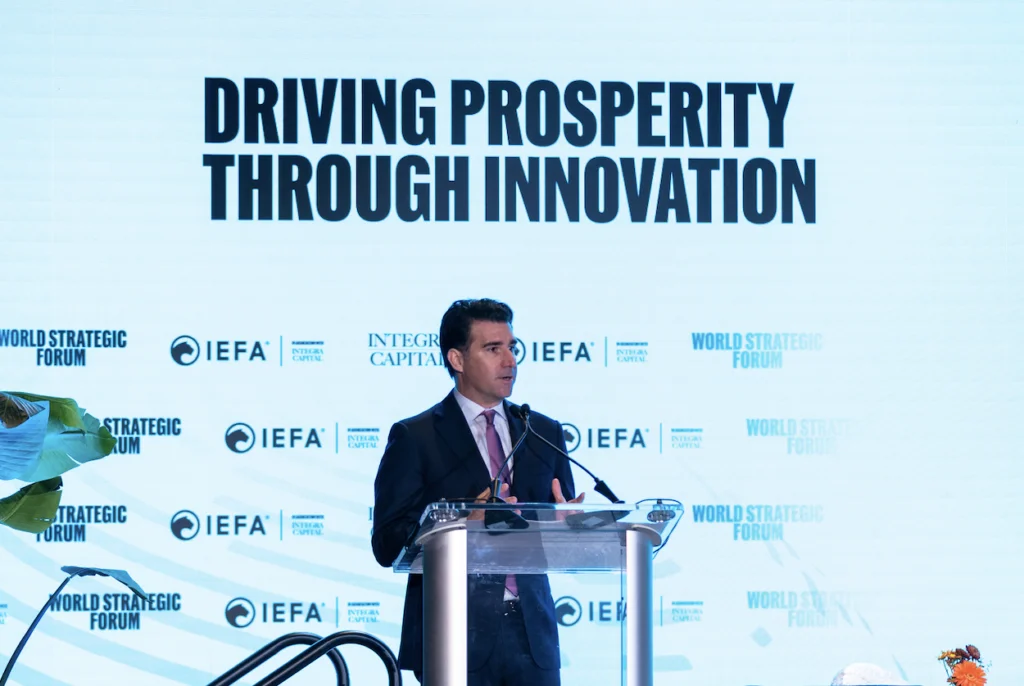
PRESS RELEASE — JUNE 15, 2022 (UK Research and Innovation) — A ‘first five’ new devices set to transform society and the economy — from healthcare to finance, defence, environmental protection and industrial opportunity — using quantum technology are now in trials across the UK.
They redraw the frontiers of what is possible and promise extraordinary step-change advances touching all our lives. All have been developed in the UK.
Each product has received key funding from the UK Quantum Challenge, part of UK Research and Innovation (UKRI), and is within the UK National Quantum Technologies Programme to create a quantum-ready economy.

The ‘first five’ will mean:
- Brain scanners that transform understanding of brain developments in childhood and neurological disorders including autism, dementia and epilepsy.
- Gas imaging cameras to detect and quantify leaks of greenhouse and other gases using a technology that combines a LIDAR and single photon avalanche detector.
- The first commercial trial of a quantum secured communications network in the world, linking major business and financial centres in London with a protection against any data theft.
- Gravity sensing that makes what lies underground finally fully mappable and understood for the first time.
- Miniaturised atomic clocks ending dependence on satellites for timing critical to healthcare, energy delivery, national security, navigation and financial services.
All are based on scientific and engineering advances that exploit understanding of the sub-atomic world.
Roger McKinlay, Challenge Director Quantum Technologies at UKRI, said: “The five projects now on the cusp of commercial application will add value not just to our personal lives, but to the wider economy, bringing investment and the growth of scientific and engineering skills across the country.

“The brain scanner, for example, is already being used by major children’s hospitals, and the quantum secure network developed with our help by BT and Toshiba is now in place and in use. These are real, scalable returns for the real economy. It is remarkable that they should all, separately, be in their final, pre-commercial trial stage at the same time.”
The ‘first five’ have received between them £19.2 million in support from the Industrial Challenge Strategy Fund (ISCF) during the first phases of the NQTP, which began in 2014. Most of the funding came within just four years, between 2018 and 2022.

The UK has one of the most advanced programmes in a global race to develop national resilience in the emerging new generation of quantum technologies.
The First Five
Wearable brain scanner
A wearable brain scanner developed at the University of Nottingham uses lightweight quantum sensors, allowing patients to move freely whilst being scanned. The scanner measures magnetic fields generated by the brain, a process termed magnetoencephalography (MEG). Unlike large, room-sized and rarely available standard MEG scanners, the quantum-enabled device offers higher sensitivity and spatial resolution with a scalable, affordable technology that allows patients to move and fits all head sizes. Two wearable scanners are already in use: At the Hospital for Sick Children, Toronto, and the Neville Childhood Epilepsy Centre, Surrey. More scanners are due to be installed in 2022, in the USA and Europe.
Contact: https://www.cercamagnetics.com
Gas imaging
A company spun out from Bristol University, QLM Technology, working with BP and other partners, uses quantum technology to see and measure emissions. It paves the way for the energy sector to dramatically cut emissions, which are polluting, costly and dangerous, with a technology that uses a LIDAR and a single photon avalanche detector (SPAD). Cameras simultaneously visualise and quantify emissions from distances of up to 200 metres. The company began in 2017 and received a £2.5 million grant from Innovate UK. Its quantum imaging cameras are due into commercial production this year and have been successfully trialled by National Grid and other organisations.
Contact: https://qlmtec.com
Secured communications network
Innovate UK funded early development of a quantum key distribution system (QKD) able to work across conventional fibre networks. The result has this year given London and its wider business centres the antidote to data theft. QKD enables the practical use of existing quantum-secured cryptography, instantly detecting and defending against adversaries eavesdropping on the exchange of cryptographic keys. The first commercial trial of a quantum secured metro network in the world covers an area from Canary Wharf to the West End and along the business corridor to Slough. The trial involves BT, Toshiba and global consultancy EY. BT is providing end-to-end encrypted communications over its Openreach private fibre networks.
Contact: https://www.global.toshiba/ww/news/corporate/2022/04/news-20220427-01.html
Contact: BT and Toshiba launch first commercial trial of quantum secured communication services
Gravity sensor
A gravity gradient sensor that allows what is invisible underground to be ‘seen’ and mapped has successfully passed a landmark open-air trial, correctly identifying a tunnel buried a metre below ground. The non-invasive technology, which has implications for defence, construction, road works and archaeology, measures changes in the pulling strength of a gravitational field when a cloud of atoms is dropped. Vibration, instrument tilt and disruption from magnetic and thermal fields made turning quantum theory into commercial reality challenging. The sensor is a collaboration led by the University of Birmingham, the Defence Science and Technology Laboratory (Dstl), RSK Group and Teledyne e2v.
Miniaturised atomic clock
Ten companies and universities, including Chelmsford-based Teledyne e2v, have collaborated to create a miniaturised atomic clock intended for wide use and availability, receiving £4.5 million from Innovate UK. The Kairos Project began in 2019 to develop precision timing for a variety of critical infrastructure services, such as reliable energy supply, safe transport links, 5G mobile communications, data networks and electronic financial transactions. The UK is currently dependent on Global Navigation Satellite Systems (GNSS) for a timing signal. These can be easily disrupted accidentally or maliciously, with a five day GNSS outage costing the UK economy an estimated £5.2 billion. The Kairos clocks are land based and independent of GNSS.
Industrial Strategy Challenge Fund
Major funding has been provided through the Industrial Strategy Challenge Fund in waves. Wave Two (2018–2021) awarded £20 million to collaborative, business-led projects to develop quantum enabled devices. Wave Three (2020–2025) develops the model deeper and further, taking in supply chain development, and will support with £153 million, with a further £205 million coming from industry. It is estimated that products helped by the fund have so far attracted about four times the total spend in private sector investment.
UK National Quantum Technologies Programme
The industry-led UK National Quantum Technologies Programme (NQTP) is a collaborative initiative to commercialise advances involving the science of manipulating matter and light at the sub-atomic level, the academic and engineering skills needed to translate that into products and the drives of industry. The programme is a partnership catalysed by Government for the benefit of society and the economy.
Earlier quantum advances touch all our lives with products such as lasers, microchips and transistors. New advances are expected to be equally transformative. The NQTP now represents more than £1 billion of investment from UK Government and the private sector. NQTP partners are: the Engineering and Physical Sciences Research Council (EPSRC), Innovate UK, the Science and Technology Facilities Council (STFC), the National Physical Laboratory (NPL), Department for Business, Energy and Industrial Strategy (BEIS), Government Communications Headquarters (GCHQ), Innovate UK KTN.
UK Research and Innovation
UK Research and Innovation (UKRI) brings together nine funding councils. These include Innovate UK, the UK innovation agency, and the Engineering and Physical Sciences Research Council, which invests in research and postgraduate training. UKRI works with Government to invest more than £8 billion a year in research and innovation.
For further information:
UKRI Media contact
UK Research and Innovation: www.ukri.org
Or
Toby Moore
07976 942209
SOURCE: UK Research and Innovation
For more market insights, check out our latest quantum computing news here.
















